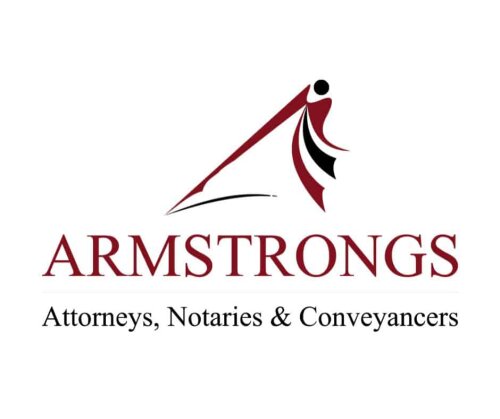Best Business Lawyers in Gaborone
Share your needs with us, get contacted by law firms.
Free. Takes 2 min.
List of the best lawyers in Gaborone, Botswana
About Business Law in Gaborone, Botswana
Gaborone, the capital city of Botswana, is a bustling metropolis known for its vibrant business environment. The city hosts a range of industries, including mining, agriculture, finance, and tourism. Business law in Gaborone primarily consists of statutes, common law, and customary law that govern how businesses operate. It covers areas such as company formation, contracts, employment, taxation, intellectual property, and trade practices. The legal framework aims to create a conducive environment for economic growth while safeguarding the interests of businesses and consumers alike.
Why You May Need a Lawyer
There are several common situations that may necessitate legal assistance for businesses in Gaborone:
- Starting a Business: Legal advice can guide you through the process of company formation, registration, and licensing.
- Contract Reviews: Reviewing contracts to ensure terms are favorable and legally sound is crucial for any business.
- Employment Issues: Drafting employment contracts, handling disputes, and ensuring compliance with labor laws may require legal expertise.
- Intellectual Property: Protecting your brand and other intellectual property assets is important for sustaining your competitive edge.
- Dispute Resolution: Whether it's a commercial dispute or a breach of contract, legal representation can be critical.
- Compliance and Regulatory Guidance: Staying compliant with local regulations and laws is essential for avoiding penalties.
- Taxation Matters: Understanding and planning for business taxes requires expert knowledge to avoid liabilities.
Local Laws Overview
The business legal framework in Gaborone is characterized by several key aspects:
- Company Law: Governed by the Companies Act, which provides the legal requirements for forming, operating, and dissolving companies.
- Contract Law: Contracts must comply with common law principles, including the necessity for offer, acceptance, consideration, and intention to create legal relations.
- Employment Law: Governed by the Employment Act, which outlines the rights and obligations of both employers and employees.
- Consumer Protection: Businesses must adhere to laws that safeguard consumers, as outlined in the Consumer Protection Act.
- Intellectual Property: Protected under various statutes such as the Industrial Property Act, ensuring businesses can safeguard their innovations.
Frequently Asked Questions
What is the process for registering a business in Gaborone?
Business registration in Gaborone involves selecting a business structure, obtaining a company registration from the Companies and Intellectual Property Authority (CIPA), and acquiring necessary licenses.
Are there specific types of companies I can register in Botswana?
Yes, you can register different types of company structures including private limited companies, public companies, and close corporations.
How can a lawyer help in drafting a contract?
A lawyer can ensure that the contract is legally binding, clear, and includes terms that protect your interests, reducing the possibility of future disputes.
What are the penalties for non-compliance with local business laws?
Penalties can range from fines to imprisonment, depending on the severity of the non-compliance. Legal advice can help avoid such situations.
Do I need a lawyer to resolve a commercial dispute?
While not obligatory, having a lawyer can help navigate the complexities of commercial disputes to ensure a favorable outcome or settlement.
Are there incentives for foreign businesses investing in Gaborone?
Yes, Botswana offers various incentives such as tax breaks and grants to encourage foreign investment in certain sectors.
How is intellectual property protected in Botswana?
Intellectual property is protected through registration with the Companies and Intellectual Property Authority, covering areas like patents and trademarks.
What are my obligations as an employer in Gaborone?
Employers must adhere to local labor laws, providing fair wages, safe working conditions, and legally mandated benefits.
Is there a government body that assists with business issues?
The Ministry of Investment, Trade and Industry provides support and guidance for businesses in Botswana. CIPA is also crucial for company registration.
Can a business be fully foreign-owned in Botswana?
Yes, foreign ownership is allowed in most sectors, but certain industries may have specific ownership requirements.
Additional Resources
If you're seeking further assistance, consider these resources:
- Companies and Intellectual Property Authority (CIPA): Provides services for company registration and intellectual property protection.
- Ministry of Investment, Trade and Industry: Offers guidance and information for businesses operating in Botswana.
- Botswana Unified Revenue Service (BURS): Handles taxation-related queries and compliance for businesses.
- Botswana Investment and Trade Centre (BITC): Offers investment guidance and support for new and existing businesses.
Next Steps
If you require legal assistance in the business sector, consider the following steps:
- Identify Your Needs: Determine the specific area in which you need legal advice or representation.
- Research Lawyers: Look for reputable business lawyers in Gaborone with experience in your area of concern.
- Schedule Consultations: Arrange initial consultations to discuss your issues and evaluate potential legal representation.
- Gather Documentation: Be prepared with all relevant documents and information concerning your case or business matter.
- Discuss Fees: Before proceeding, ensure you understand the fee structure and payment terms of the legal services.
Lawzana helps you find the best lawyers and law firms in Gaborone through a curated and pre-screened list of qualified legal professionals. Our platform offers rankings and detailed profiles of attorneys and law firms, allowing you to compare based on practice areas, including Business, experience, and client feedback.
Each profile includes a description of the firm's areas of practice, client reviews, team members and partners, year of establishment, spoken languages, office locations, contact information, social media presence, and any published articles or resources. Most firms on our platform speak English and are experienced in both local and international legal matters.
Get a quote from top-rated law firms in Gaborone, Botswana — quickly, securely, and without unnecessary hassle.
Disclaimer:
The information provided on this page is for general informational purposes only and does not constitute legal advice. While we strive to ensure the accuracy and relevance of the content, legal information may change over time, and interpretations of the law can vary. You should always consult with a qualified legal professional for advice specific to your situation.
We disclaim all liability for actions taken or not taken based on the content of this page. If you believe any information is incorrect or outdated, please contact us, and we will review and update it where appropriate.
Browse business law firms by service in Gaborone, Botswana
Gaborone, Botswana Attorneys in related practice areas.
















